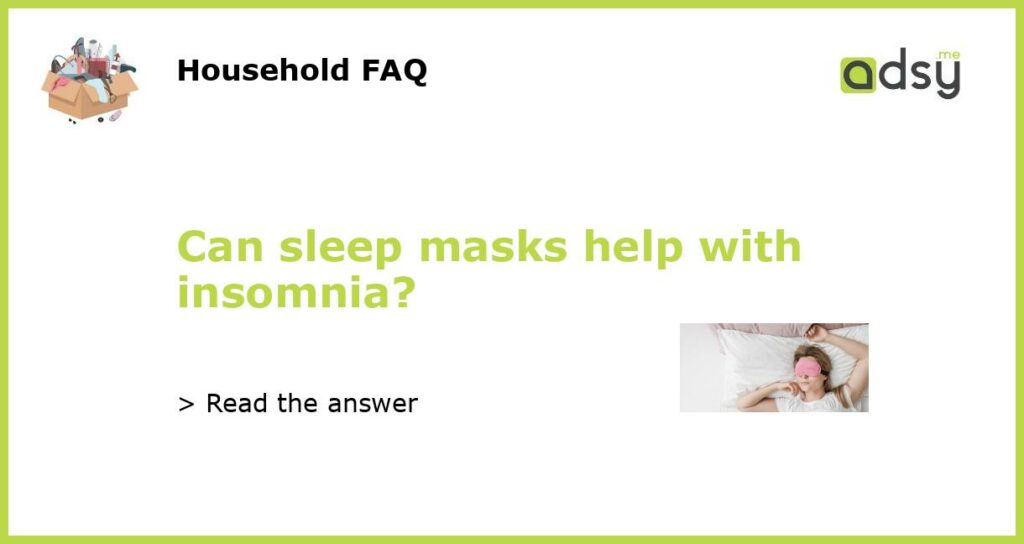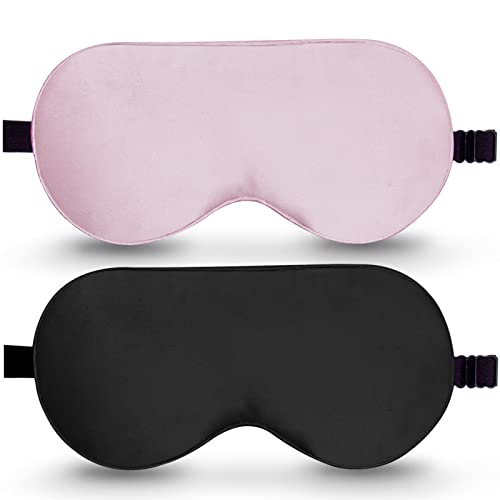Yes, sleep masks can help with insomnia
Sleep masks, also known as eye masks or blindfolds, have been used for centuries to help people sleep better. They are often used by people who struggle with insomnia or have difficulty falling asleep. Sleep masks work by blocking out light and creating a dark environment, which can help promote relaxation and improve the quality of sleep. While they may not be a cure-all for insomnia, sleep masks can be a useful tool in managing sleep difficulties.
How do sleep masks work?
Sleep masks work by covering the eyes and blocking out light. They are typically made from a soft, comfortable material and are designed to fit securely over the eyes without putting pressure on them. The mask creates a dark and enclosed space around the eyes, which helps reduce sensory input and promote a sense of calmness. By blocking out light, sleep masks can help regulate the body’s natural sleep-wake cycle, making it easier to fall asleep and stay asleep.
The benefits of using sleep masks for insomnia
There are several benefits to using sleep masks for insomnia. One of the main benefits is that they create a dark environment, which can be particularly helpful for people who have difficulty falling asleep in a well-lit room. Light has a direct impact on the body’s sleep-wake cycle, and exposure to light at night can disrupt the production of melatonin, a hormone that regulates sleep. By blocking out light, sleep masks can help maintain the body’s natural circadian rhythm and promote deeper, more restful sleep.
In addition to promoting a dark environment, sleep masks can also help reduce distractions that may disturb sleep. For example, if you share a bedroom with a partner who likes to read or watch TV before bed, a sleep mask can help block out the light from their activities and allow you to focus on your own sleep. Likewise, if you live in a noisy neighborhood or have a snoring partner, a sleep mask can help cover your eyes and minimize distractions, allowing you to relax and fall asleep more easily.
Are there any drawbacks to using sleep masks?
While sleep masks can be a helpful tool for managing insomnia, there are a few potential drawbacks to consider. Some people may find it uncomfortable to sleep with a mask covering their eyes, especially if they are not used to wearing one. It can take some time to adjust to the sensation of wearing a sleep mask, and it may not be the right solution for everyone.
Another potential drawback is that sleep masks may not be suitable for certain sleeping positions. If you tend to sleep on your stomach or move around a lot during the night, a sleep mask may shift or become dislodged, leading to discomfort and potentially disrupting sleep. It’s important to find a sleep mask that is comfortable and secure, and that fits your individual sleeping habits and preferences.
Overall, sleep masks can be a helpful tool for managing insomnia and improving sleep quality. By creating a dark environment and reducing distractions, sleep masks can promote relaxation and deeper, more restful sleep. While they may not be a cure for insomnia, they can be a useful addition to a comprehensive sleep routine that includes other strategies such as creating a sleep-friendly environment, practicing good sleep hygiene, and managing stress. If you struggle with insomnia, it may be worth giving sleep masks a try to see if they can help improve your sleep.






